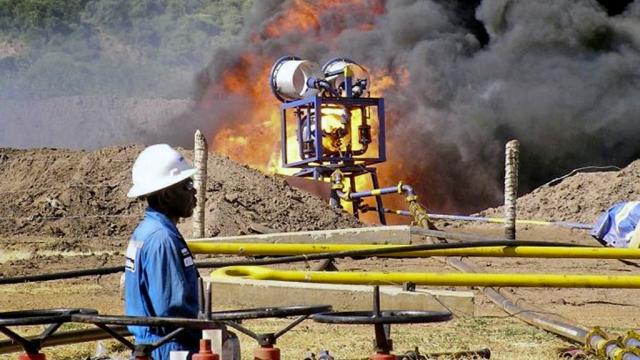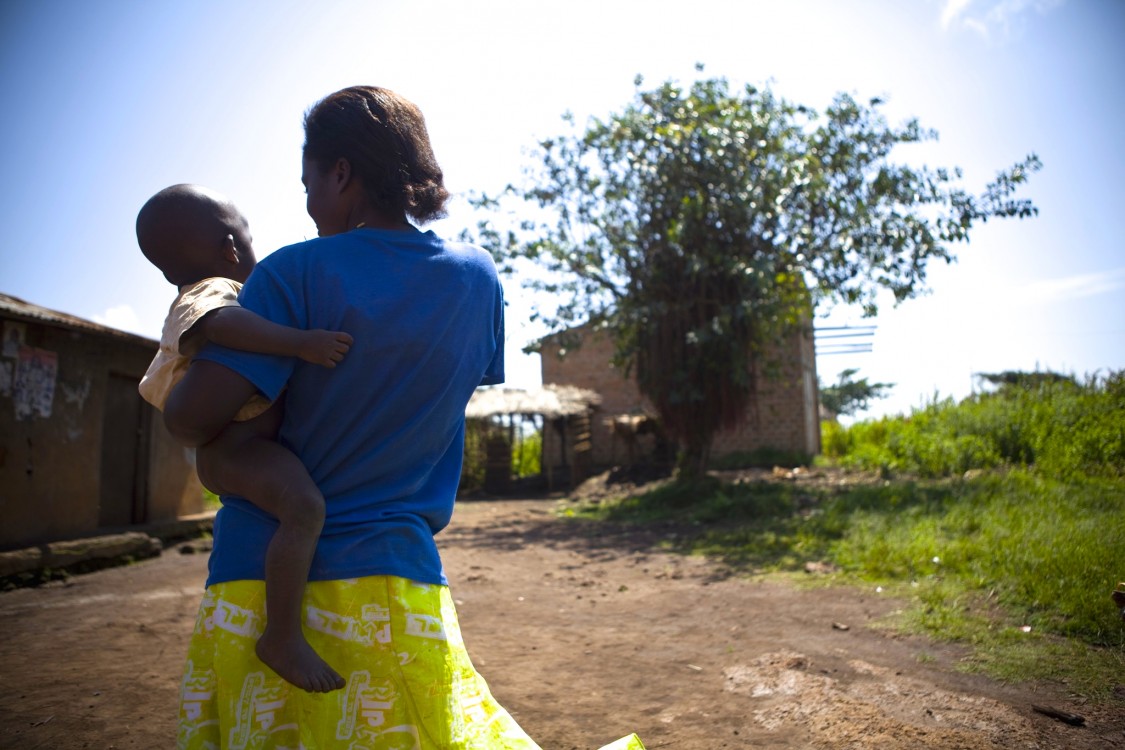
The lives of residents in Rwamutonga, a village in the Hoima district of western Uganda, were violently overturned in the early morning hours of Aug. 25. To the sound of screams, gunshots and heavy demolition vehicles, more than 200 families were evicted from their homes that day by private hired strongmen accompanied by police officers.
The residents, who had not been given any prior notice about the eviction, could only stand by while their homes were bulldozed and burned in front of them. Several villagers living outside the area covered by the court order were forced out as well. People were beaten, animals were looted and several children were reported missing in the aftermath of the evictions.
Many of the residents of Hoima have been living on their land for decades, and many were born here. At least two women from the village later reported being raped by private security guards patrolling the fenced-off lands. The rapes allegedly took place when the women, who had nothing to feed their families, tried to go back to their fields to collect unharvested food.
One male resident of Rwamutonga village, Adriko Lina, described to Voice of America what happened when he attempted to return to his property where his house was still standing: "I tried to sneak back to my farm to get some food for my children, but was detected, detained and they set my house on fire with me locked inside," he said. "I was seriously burned, but was able to force my way out."
Making Room for Big Oil
Ultimately the eviction is about making room for the oil industry, which seeks to tap Uganda's underground wealth. This, at least, is according to the businessman whom the court now claims owns the land where the villagers were evicted.
The businessman, who Occupy.com is unable to name for legal and security reasons, reportedly said Texas-based McAlester Energy Resources paid him to secure the land so that the company could build an oil waste treatment plant on the site.
Though McAlester Energy Resource denied it had anything to do with the evictions, the company acknowledges it made a deal with the businessman whose own hiring of private muscle cleared the land.
According the McAlester's webpage, the company´s goal “is to assist the leadership in Uganda to show the entire industry 'how to do it right'” and to have “respect for people, nature, and wildlife in all that we pursue.”
Since the first commercially viable oil was discovered here in 2006, numerous people have already experienced what it feels like when the oil industry and its investors show “how to do it right.” A series of evictions have been carried out against the local customary land users, and thousands are estimated to have been evicted from their homes.
More and more, businessmen are taking advantage of the informal land ownership of Ugandans who often don't hold deeds. At the same time, international investors with political support and money are posing an increasing challenge to the mostly poor residents living on resource-rich land.
Like the events in Rwamutonga, new “owners” show up with private muscle and police, leaving the local landowners little chance to remain there or to defend their historic rights to the property. They are often settled with a small compensation, but with no means of securing a future income.
Some of the families from the recent eviction have been resettled, but others are still homeless or live with their relatives. Many have no sources of income, and local leaders are on record accusing each other of malfeasance during the conflict. Local authorities are likewise blaming each other for misconduct while not much has been done to help the violated villagers.
Only two years ago, thousands of people were evicted from their homes and denied access to their fields to make room for an oil refinery. Then, as now, locals became the target in a battle of words.
A local district commissioner, Ambrose Mwesigye, has accused Rwamutonga's evicted villagers of being aggressive, illegal squatters who repeatedly attacked the police. He also claims the eviction was carried out peacefully and in good order despite great evidence to the contrary.
Several NGOs have reported that the villagers' rights were violated and community leaders say many villagers are still without food, shelter and medicine.
Minerals Causing Eviction
Just as more evictions and land grabs in oil-rich areas are becoming the reality in Uganda, people living on mineral-rich land are also likely to see evictions in the future. Following political steps to attract investors in that arena as well, there have been official statements claiming that locals have no right to negotiate over their land in the case of government extraction permits handed over to foreign mining investors.
But right now, the big focus in Uganda is on oil, which is still in its early development phase. While at the beginning there were numerous bidders for the country's oil fields, that number has shrunk to three: UK-based Tullow Oil, France’s Total, and China’s Cnooc. As further explorations get underway, people here expect more violent evictions and greater numbers becoming homeless in the process.
3 WAYS TO SHOW YOUR SUPPORT
- Log in to post comments

















